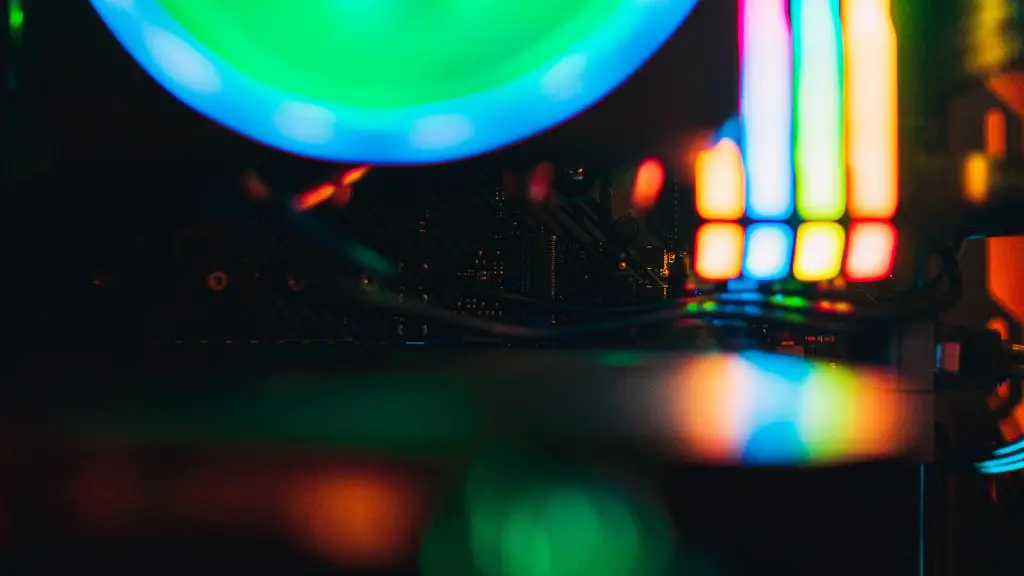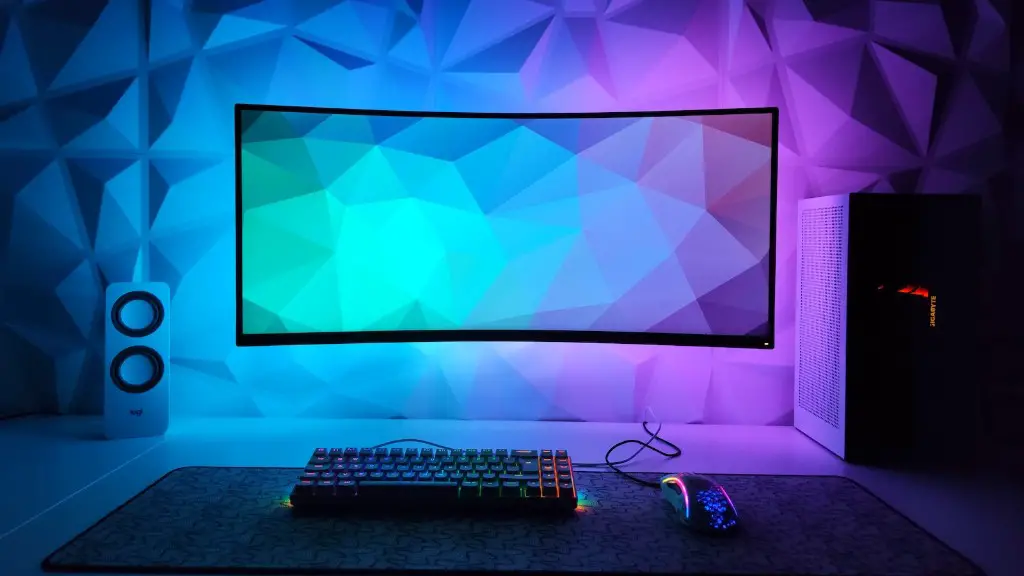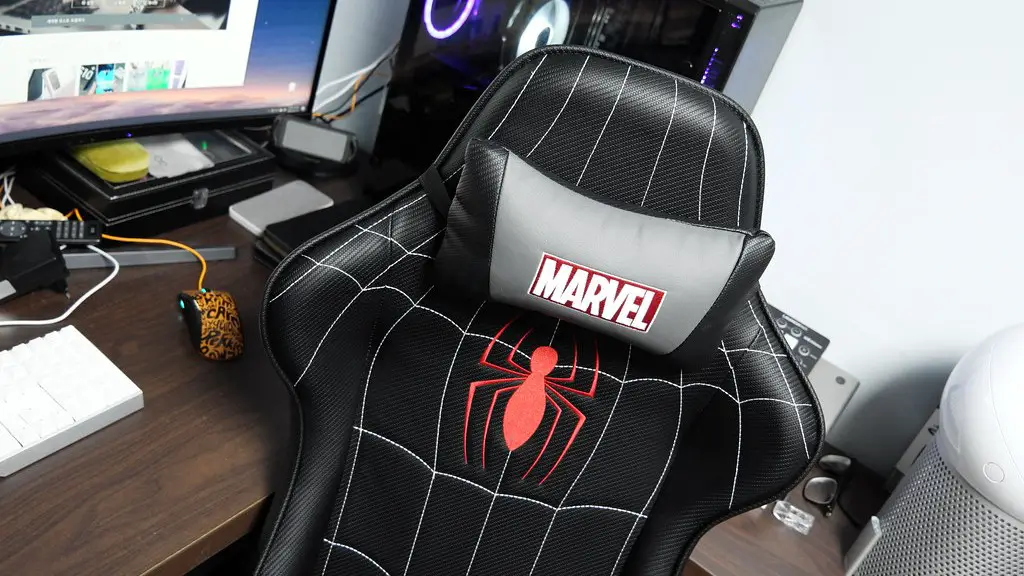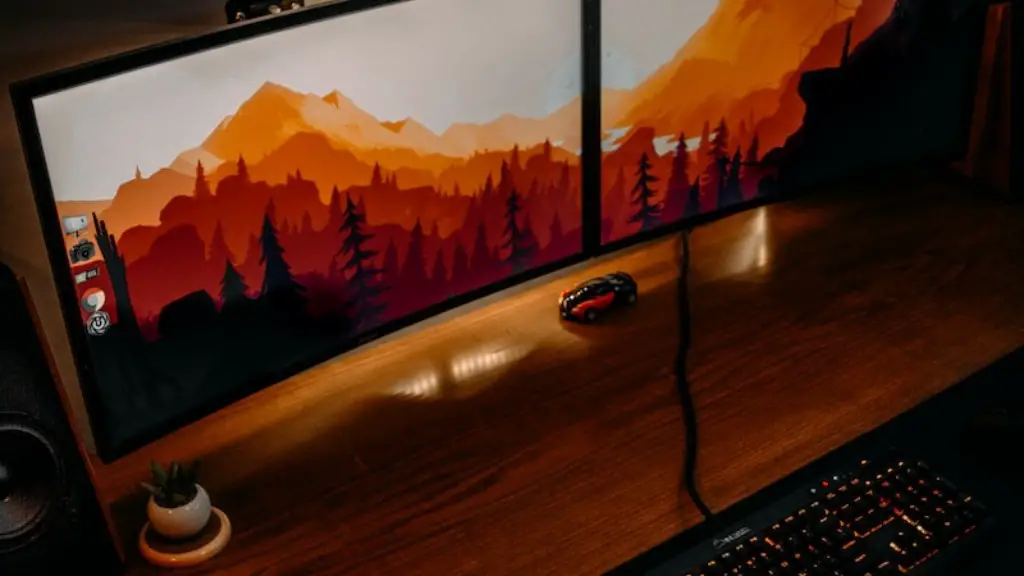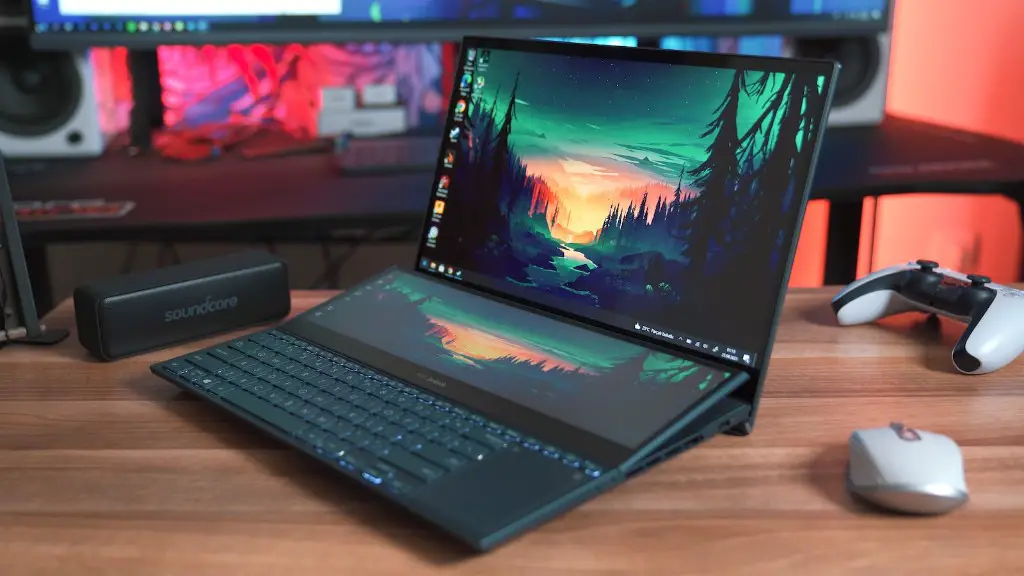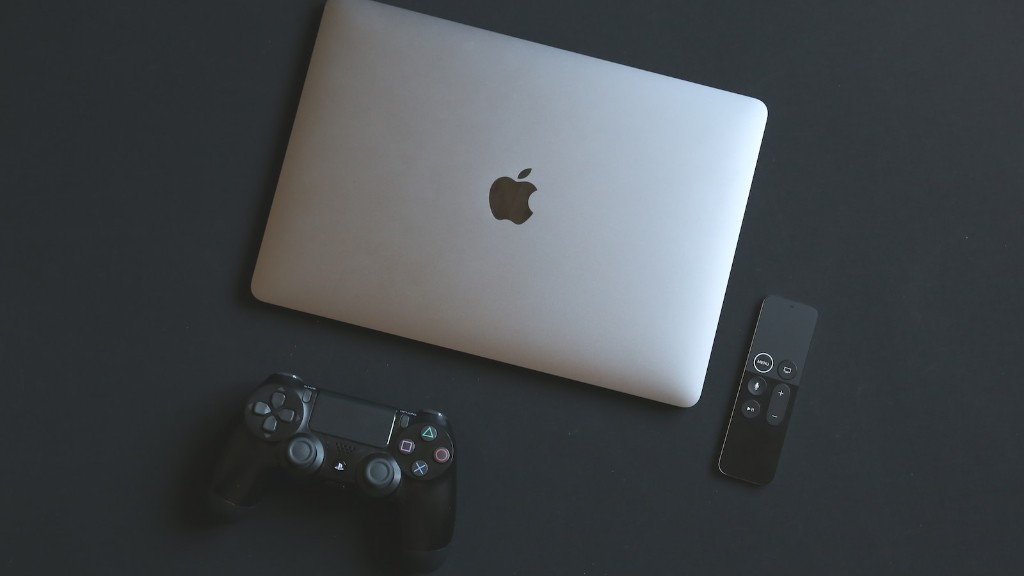Creating a gaming PC involves taking a variety of components, combining them together, and customizing them to your needs. At the core of it, you need a CPU, a powerful GPU, lots of RAM, suitable storage, a PSU, a motherboard and suitable software to match.
The CPU is the main processing unit of the PC which is responsible for loading data into RAM, giving instructions to the processor, and executing instructions from the program. A CPU with a high clock speed will run faster than a slower one, allowing you to play more demanding titles.
The GPU (graphics processing unit) is responsible for rendering graphics in your game. This has to be matched with appropriate graphics card and monitor; a gaming laptop or desktop will have dedicated graphics card and monitor, while a console requires a TV.
RAM (random access memory) is the memory that a computer uses to run programs. For gaming, an appropriate amount of RAM is a must. 8GB or 16GB is suitable for most titles. If you’re looking to play more demanding games, then 16GB or even 32GB would be recommended.
The storage is where your game will be stored, as well as any save data you may have. This could be a hard drive or an SSD (solid state drive). SSDs are faster but cost more, making them more suitable for those looking for performance. A hard drive is cheaper and provides more storage, but will be slower to access.
The PSU (power supply unit) supplies power to the components of the computer, and needs to be matched with the components. It is important to get the right power supply for the components, as a weak one will not provide enough power and an over-powered one will be wasteful.
Finally, the motherboard acts as a hub between the components, providing slots to connect the other components together. It also provides slots for additional storage and expansion options, like additional RAM and GPUs. It is important to select a motherboard that is compatible with your components.
Choosing Components
Choosing the right components for your gaming PC is essential in order to get the performance you desire, while keeping the costs down. You will need to look into the specs of each component, like the clock speed, RAM capacity and storage capacity, to get the best performance for your budget.
When looking at the GPU, it’s important to look for one with a higher clock speed and with more memory, as this will give you a better gaming experience and allow you to play more graphically demanding games. It’s also important to consider the resolution and size of the monitor, as this will affect what games and graphics settings you can use.
RAM is important for multitasking and gaming, as having more RAM will allow you to have more applications open while gaming and will allow you to switch between them faster. You should aim for 8GB or 16GB at least, with 32GB or higher being suitable for more demanding titles.
Storage is necessary for saving games and data, and you will need enough for all of your games and any other files you may have. This can be a hard drive or an SSD, but for faster loading times and better performance, an SSD is recommended. You should also consider the speed of the drive, as this will affect how fast your games will load.
Finally, the motherboard is the hub that connects all the components together, providing slots for each component. It is important to get the right one, as some components may not be compatible with certain motherboards, or the other way around. It is important to match the form factor and the socket type of your CPU and motherboard, as well as double-check that it has enough slots and ports for all your components.
Cooling and Noise
Cooling is essential for a gaming PC, as the components produce a lot of heat which can cause them to overheat and fail. A good cooling solution consists of a CPU cooler, case fans, and a graphics card cooler. A liquid cooling solution is even better, as it can improve cooling performance, reduce noise, and improve the overall aesthetics of the PC.
It’s also important to consider the noise produced by your PC. A good cooling solution will help reduce noise, as well as choosing components with a focus on noise reduction. Some components, like graphics cards, may be louder than others, so choosing a card with a focus on silence is important.
Cable management is also important in terms of air flow and keeping the interior of your PC neat and tidy. Cable ties and sleeving can help keep your cables neat and tidy, while also improving the airflow inside the case. It can also improve the aesthetics of your PC, making it look more pleasing to the eye.
Finally, you should consider a PSU with an 80 Plus rating, as this indicates that it is efficient and will save on power bills over time. An 80 Plus rating will also indicate that the PSU has better voltage regulation, which is important for a reliable and stable gaming PC.
Software Configuration
Software configuration is important for the performance of your PC. This includes Windows, drivers, game settings, and other software. It’s important to get the latest version of Windows, as this will ensure compatibility with the latest games and components, as well as improving performance and security.
Installing the latest drivers is also important, as this will ensure that your components are working at peak performance. Game settings can be important as well, as some games may require specific settings to get the best performance out of them.
Finally, software optimization is important for the best performance. Programs such as Razer Cortex Game Booster can help you optimize your PC for gaming, as well as lower the power consumption of your components. This can result in improved performance and reduced fan noise.
Building Process
Building a gaming PC may seem daunting at first, but it isn’t too difficult, and can be enjoyable if you take your time and research each component beforehand. The main steps to building a PC include finding and buying the components, unpacking the components, assembling the components, making the necessary connections, and finally testing the PC.
It’s important to take your time with each step, and look up appropriate tutorials or guides if you are unfamiliar with the process. Once you have installed the components and made the necessary connections, it’s time to test the system, to make sure all components are functioning correctly. This can be done by running basic benchmarks such as 3DMark or Cinebench.
Once the tests have been completed, you can then install the necessary software, like the operating system, drivers, and game settings. Once this is done, you can then start gaming, and you should be able to enjoy your new system easily.
Maintenance and Upgrades
Maintaining your PC is important for the longevity of your PC and for optimal performance. This includes routine cleaning, limited dust accumulation, cable management, and proper cooling. Dust can accumulate over time and cause the components to overheat, so it’s important to keep your system clean by using compressed air or wipes to clean the components.
Upgrading your PC is also important, if you want to keep up with the latest games or better performance. Upgrading the GPU or storage, for example, can greatly improve performance and allow you to enjoy newer games. It’s important to research each component before buying, and find out which components are compatible with your PC.
Having the correct PSU is also important for any upgrades, as having too weak of a PSU can result in the components not getting enough power. It’s important to know the total wattage of your build, as well as ensure that it is compatible with your current PSU. Upgrades can be expensive, but can also greatly improve the performance and longevity of your PC.
Networking and Security
Networking your PC to the internet is important, as some games may require an internet connection to play or to access online services. A wired connection is the most secure and reliable, as it will provide a faster and more reliable connection, compared to Wi-Fi. It’s important to use a wired connection, as it will be more stable and secure than a wireless connection.
Securing your PC is also important, as there are threats to both hardware and software, such as viruses and malware. It’s important to have antivirus software installed, as well as a firewall, to protect your system from malicious attacks. It’s also important to keep your software up to date, to ensure that any security vulnerabilities are fixed.
Having a secure browser is also important, as web browsers tend to be targeted more often than other programs. Chrome, Firefox and Edge are all secure, with Chrome being the most secure, as it has several additional security features.
Finally, it is important to create a strong password for your PC, as this will protect your data and will prevent unauthorized access. It’s also important to keep your data backed up, as this will allow you to restore your system in case of a crash or data loss.
